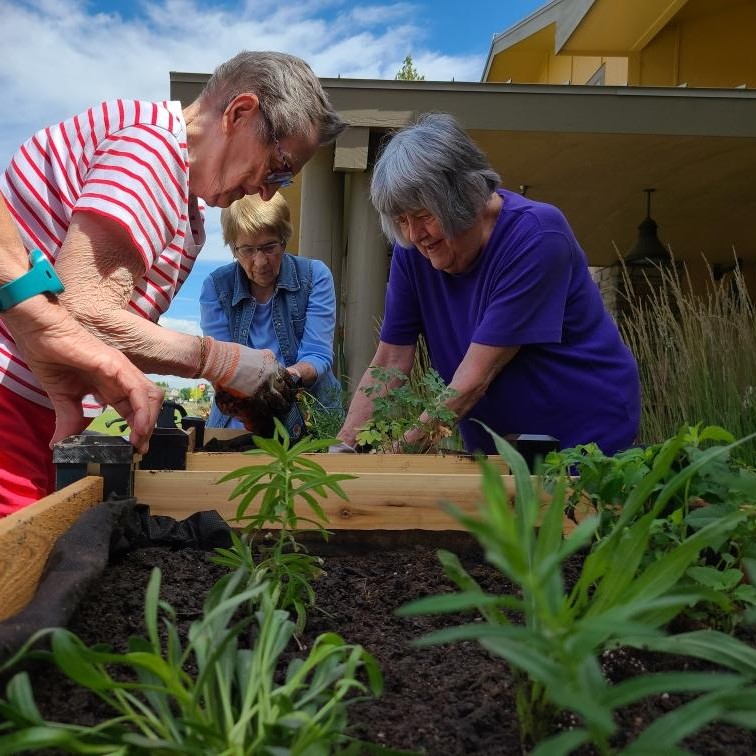- Overview of Happy Senior Citizens Day and Butterfly Pavilion’s Role
- Introduction to the Healthy Habitats Gardening Program
- Physical, social, and cognitive benefits of gardening for senior citizens
- Importance of creating pollinator habitats for environmental conservation
- Success stories and future goals of the program
Every year, Happy Senior Citizens Day brings attention to the invaluable contributions of senior citizens in our lives. The Butterfly Pavilion in Westminster, Colorado, plays a crucial role in this annual celebration by engaging with facilities across the Denver Metro area. Through its Healthy Habitats Gardening Program, it creates pollinator habitat gardens and imparts gardening knowledge to adults in various care facilities. The initiative provides spaces for pollinators and numerous benefits to seniors in memory care, skilled nursing, and rehabilitation settings.
The Healthy Habitats Gardening Program is a cornerstone of Butterfly Pavilion’s outreach efforts. It aims to connect senior citizens with nature, thereby promoting overall well-being. This program encompasses the creation of pollinator gardens, which are spaces designed to attract and support pollinators such as bees, butterflies, and other vital insects. These gardens serve dual purposes: advancing conservation efforts and offering therapeutic benefits to the elderly.
Gardening is an activity that combines moderate physical exercise, mental stimulation, and social interaction. For senior citizens, especially those in memory care, nursing homes, and rehabilitation centers, the Healthy Habitats Gardening Program provides a means of staying active. Physical tasks such as planting, weeding, and watering plants help improve mobility and strength. Research has shown that gardening can significantly reduce the risk of osteoporosis and help maintain motor skills. These activities are tailored to be safe and manageable, considering the physical limitations that seniors may have.
Beyond the physical advantages, gardening offers substantial cognitive benefits. Engaging with plants stimulates the senses and can enhance memory and concentration. For individuals in memory care, the routine and repetitive nature of gardening tasks can be calming and grounding. This connection with nature can reduce agitation and improve mood, offering a natural and enjoyable way to manage stress and anxiety. Involving seniors in the planning and decision-making processes of the garden further engages their cognitive faculties, keeping their minds active and sharp.
Socialization is another significant benefit of the Healthy Habitats Gardening Program. Group activities such as planning and maintaining the gardens encourage participant interaction, fostering a sense of community and belonging. These interactions can combat feelings of isolation and loneliness, common issues among the elderly. Sharing stories and working together towards a common goal helps build relationships and support networks, which are crucial for emotional well-being.
From an environmental perspective, the creation of pollinator habitats has far-reaching implications. Pollinators like bees and butterflies play a crucial role in our ecosystems, aiding in the pollination of plants, including many crops important for human consumption. However, pollinator populations have been declining due to various factors such as habitat loss, pesticide use, and climate change. By creating and maintaining pollinator gardens, the Healthy Habitats Gardening Program contributes to the conservation of these essential species. These gardens provide critical resources, such as nectar and pollen, and safe spaces for pollinators to thrive.
Additionally, the program’s educational component raises awareness about the importance of pollinators and their conservation. Participants learn about the different species of pollinators, their roles in the ecosystem, and the types of plants that support them. This knowledge empowers seniors and other community members to contribute to conservation efforts beyond the program, fostering a culture of environmental stewardship.
The Healthy Habitats Gardening Program’s success is evident in the positive feedback from participants and their families. Many have noted improvements in mood, physical fitness, and mental clarity. The gardens become vibrant spaces of life and beauty, enjoyed by residents, staff, and visitors. The program’s impact extends beyond individual benefits, contributing to the health of local ecosystems and raising community awareness about pollinator conservation.
Looking to the future, Butterfly Pavilion aims to expand the reach of the Healthy Habitats Gardening Program. By partnering with more facilities and communities, they hope to create additional pollinator habitats throughout Colorado. The ultimate goal is to connect people and nature, promoting human health and environmental sustainability.
For more information about the Healthy Habitats Gardening Program and how to get involved, visit butterflies.org/healthy-habitat-gardening/. This initiative exemplifies how community engagement and environmental conservation can work together, creating meaningful human and ecological health impacts.
*****
Source Description
Happy Senior Citizens Day! Every year, Butterfly Pavilion works with facilities across the Denver Metro area to create pollinator habitat gardens at their location and teach gardening to adults through our Healthy Habitats Gardening Program! This program helps encourage physical, social, and cognitive benefits to people in memory care, skilled nursing, and rehabilitation facilities by connecting them with nature. In doing so, we provide plants and habitats for pollinators around Colorado while connecting members of our community with nature. To learn more, visit butterflies.org/healthy-habitat-gardening/


